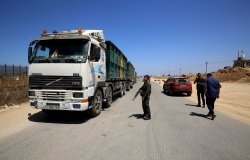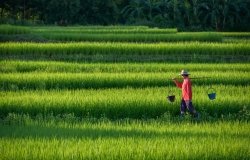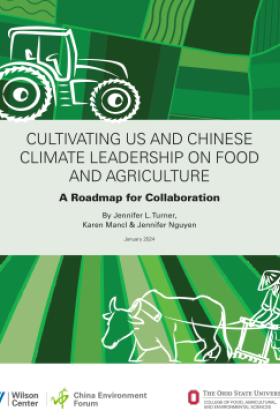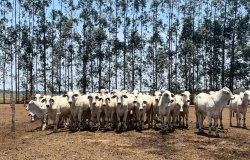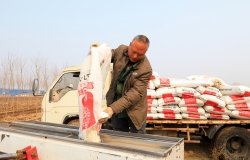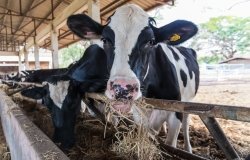Grains and Hydrocarbons: The Middle East and the War in Ukraine
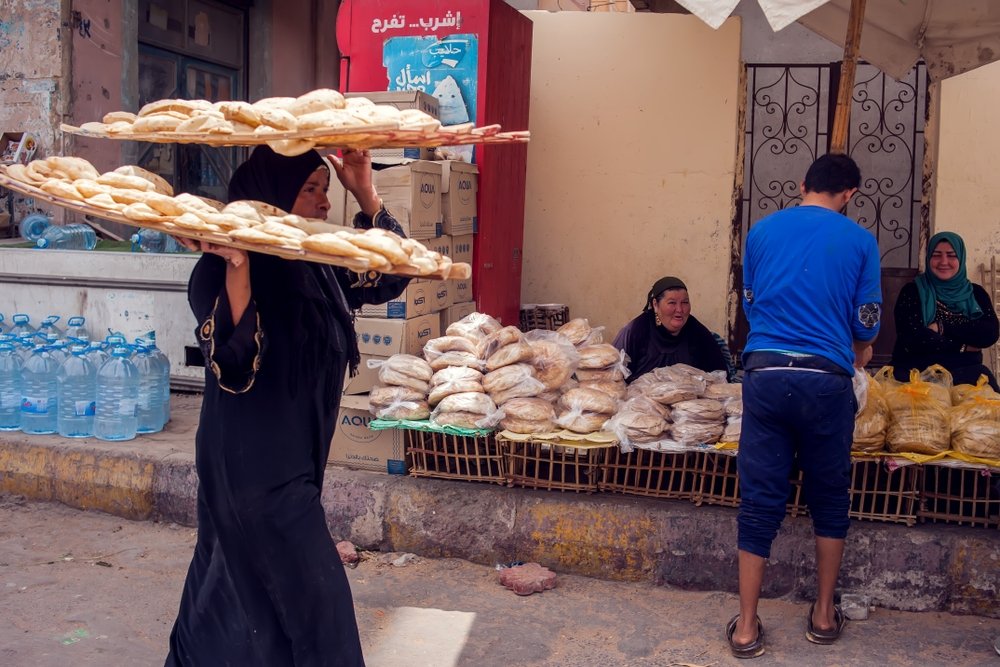
aleks333 / shutterstock.com
The war in Ukraine is likely to have immediate effects on many countries in the MENA region. Ukraine, an important global producer of sunflower oil and grain, alongside Russia, provides a third of the world’s wheat and barley. The Russian invasion will severely disrupt food transport logistics within Ukraine and across its borders due to the suspension of shipping from Ukraine’s commercial ports. On top of this, the war comes at a critical time in the global agriculture calendar, falling at the start of the 2022 planting and growing season, which will likely severely affect the 2022 harvest, which begins in late June. This is particularly worrying for the countries of MENA that often heavily rely on exports from both Russia and Ukraine.
MENA’s reliance on grain imports
Egypt, the world’s largest importer of wheat, imports nearly 85 percent of its wheat from Russia and Ukraine, and, in early April, it was estimated that the country has strategic wheat reserves sufficient for 2.6 months before its wheat reserves are exhausted. Similarly, in Lebanon, where wheat reserves are expected to last 1 month only, lost its national reserves in the 2020 Beirut explosion, the prospect of a steep decline in exports from Ukraine – where Lebanon imports around 60 percent of its wheat from – is likely to severely affect the country’s economy and food security. Finally, Tunisia relies on Ukraine for approximately 50 percent of its wheat supplies and has an estimated four months of reserves, as of March 2022.
The possibility of renewed social unrest as ordinary citizens face the burden of increasing grain prices cannot be excluded.
What, though, might be the knock-on political, social, and economic effects of grain shortages? Historically, food price hikes have produced social unrest in the region, such as the ‘bread riots’ of 1977 in Egypt and 1983 in Tunisia; the former, precipitated by an International Monetary Fund (IMF) and World Bank-driven termination of basic food subsidies on flour, rice and cooking oil; while the latter was the result of an IMF-imposed austerity program. Moreover, some have pointed to food price increases as a contributing factor to the 2010-11 uprisings that swept the Arab world. The possibility of renewed social unrest as ordinary citizens face the burden of increasing grain prices cannot be excluded. As Hamza Meddeb, a Nonresident Senior Fellow at Malcolm H. Kerr Carnegie Middle East Center commented to me that rises in food prices, coupled with the economic effects of the pandemic, are likely to “fuel unrest and displacement . . . particularly in countries already suffering from inflation and deterioration of purchasing power.”
More specifically, in Tunisia, food price hikes are likely to severely test Qais Saied’s presidency. Russia's war in Ukraine is deepening Tunisia's economic crisis and posing “important challenges” for the North African country as it emerges from the Covid-19 pandemic, says the International Monetary Fund. Moreover, and as Meddeb notes, “illegal migration from Tunisia reached a record in 2021 when, 16000 arrived in Italy.” This is likely to further increase in 2022 as bread shortages and prices begin to bite. Finally, in Lebanon, it is estimated that half the population now lives in poverty and food inflation has been a recurring problem. The Association of Mills in Lebanon issued a statement declaring that the war in Ukraine had led to the cancellation of all wheat sale deals, leading to an increase in the price of one ton of wheat to between 45 and 50 USD. To address this challenge, Lebanon is close to reaching an agreement with the World Bank in which the international agency would give the crisis-hit country a $150 million loan for food security and to stabilize bread prices for the next six months.
Countries across the region are looking for ways to lessen the impact of price increases and secure other sources of grain. The Ministry of Agriculture in Tunisia, for example, said that the country has switched to suppliers from Argentina, Uruguay, Bulgaria, and Romania for mainly soft wheat, and France for fodder and barley.
Meanwhile, in Egypt, the Ministry of Supply has looked to make saving on its food subsidy budget by diversifying the sources of Egypt’s imports of wheat during 2021; it has purchased wheat from Latvia for the first time and began accepting imports from other countries, such as France, Canada, India, and the United States. Moreover, according to data from the Egyptian Ministry of Agriculture, Egypt aims to achieve between 60 and 62 percent of wheat self-sufficiency during this season, and the country has cultivated about 3.6 million feddans of wheat (equivalent to around 1.5 million hectares), which is scheduled to produce between 9.5 and 10 million tons. The Egyptian Minister of Supply stressed the government's keenness to diversify beyond the 14 countries it currently has contracts with and, in April, approved India as one of its wheat suppliers. Finally, during a meeting with the French ambassador before the Russian-Ukrainian crisis, the ambassador expressed his country's readiness to provide any amount of wheat.
Hydrocarbons and new Gulf relations
If many countries in MENA will be forced to radically rethink their grain import strategies in the coming months, the war in Ukraine is also reshaping geopolitical relations as the West looks to shore up its hydrocarbon supplies. Shortly after Russia’s invasion, President Joe Biden looked to Saudi Arabia and UAE to help stabilize surging oil prices. Both Saudi Crown Prince Mohammed bin Salman (MBS) and the crown prince of Abu Dhabi, Mohammed bin Zayed Al Nahyan, are reported to have refused President Biden’s calls. This was interpreted as a reflection of concerns regarding the US position on Houthi rebels in Yemen and the potential revival of the Iran nuclear deal. As a result – and as Dr. David Ottaway put it to me – at least for the moment “[Prince Mohammed bin Salman] has decided his alliance with Russian President Putin is more important, in oil matters at least, [than coming] to Biden’s rescue.”
In a soon-to-be-published Council on Foreign Relations special report, Steven Cook and Martin Indyk propose a grand bargain in which the United States would improve relations with MBS and make more explicit pledges to protect Saudi Arabia in return for a series of Saudi moves, from working to end the war in Yemen to recognizing Israel to taking more explicit responsibility for the murder of journalist and Post contributing columnist Jamal Khashoggi.
Meanwhile, European countries are looking to Qatar as a replacement for lost Russian gas supplies. The country has plans to expand its liquefied natural gas (LNG) production by 40% a year by 2026 through its North Field East project and, in recent years, has nurtured relations with a number of European importers. Most significantly, since the start of the war in Ukraine, Germany has looked to end its dependence on cheap, Russian gas, signing a long-term agreement for the supply of LNG from Qatar and acquiring floating gas terminals to solve its lack of on-shore facilities. That being said, in the short term, Qatar’s preference for long-term contracts and the shipping time for LNG tankers make it difficult for the country to further pivot its gas supplies toward Europe. In late March, Qatar’s energy minister, Saad Sherida al-Kaabi, warned that Qatar replacing the Russian gas supply was “not practically possible” at the current moment.
Gulf countries see neutrality as offering the safest way forward, keeping open economic and geopolitical relations with both the West and East.
Gulf countries, then, see neutrality as offering the safest way forward, keeping open economic and geopolitical relations with both the West and East. Cinzia Bianco, however, notes that, when it comes to the Ukraine crisis, “neutrality will not be an easy option” for the US’ strategic partners. For example, Bianco characterizes the UAE’s abstention on the February 25 UN Security Council resolutions condemning Russia’s invasion of Ukraine as an example of the country’s “extreme hedging,” which may prove unsustainable in the long run. Nevertheless, as Justin Alexander notes, the economic and political links that countries such as Qatar have with Russia may offer a diplomatic bridge between Russia and the West as other channels cease to function.
Conclusion
Going forward, to lessen the impact of global grain price shocks and shortages, MENA countries should look to cultivate food sovereignty at the national and regional level.
The invasion of Ukraine deepens and exacerbates already-present vulnerabilities in MENA countries' grain import policies. Price hikes for bread have historically produced social unrest across the region, and are likely to do so again as the price of grain hits the pockets of ordinary Arabs. Going forward, to lessen the impact of global grain price shocks and shortages, MENA countries should look to cultivate food sovereignty at the national and regional level. This should be combined with greater flexibility regarding crop types and grain import-export logistics, as well as support for small and medium-sized domestic farmers.
In contrast, the invasion of Ukraine may appear to have strengthened the hand of states in the Gulf and underscores the continuing global reliance on oil and gas. However, this should not preclude the need for states both in the Gulf and in the wider MENA region to invest in clean and reliable forms of energy and prepare for a post-carbon future.
The views expressed in these articles are those of the author and do not reflect an official position of the Wilson Center.
About the Author


Middle East Program
The Wilson Center’s Middle East Program serves as a crucial resource for the policymaking community and beyond, providing analyses and research that helps inform US foreign policymaking, stimulates public debate, and expands knowledge about issues in the wider Middle East and North Africa (MENA) region. Read more


